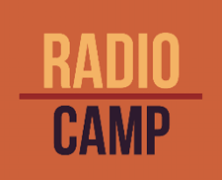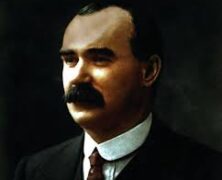Learn how to: Present your own radio shows; DJ like a pro; Record a vox pop; Edit and produce your own music/jingles; Develop your public speaking; Get a certificate and portfolio of all your work. Places cost €175 and are for 14-17 year olds June and July 2015 Monday to Friday from 12.00 til 17.00 pm For more information, contact: radiocamp@ucc.ie or ring Kieran Hurley on 021...
UCC 98.3FM Short Story Competition for Radio...
posted by Cloud
Here’s your chance to write one of 40 short stories that will be chosen by UCC 98.3 FM to be professionally recorded and broadcast on radio. Closing date is September 30th 2015. 1st prize: €300 2nd prize: €200 3rd prize:€100 For more information carriedinwaves@ucc.ie See twitter...
Socialism: What is it and why do we need it? by Graham Harrington...
posted by Cloud
Socialism is a system whereby the means of production, distribution and exchange are publicly owned and used for the benefit of society as a whole. In English, this means that the natural resources of a country (oil, land, gas, water), the infrastructure (power stations, roads) as well as the commanding heights of the economy (the large industries, factories and essentially anything that produces anything on a large scale) are owned by the state. However, this is not the same as what we currently recognise in Ireland as state ownership. Under Socialism, the working class, i.e. the vast majority of society who do the vast majority of the work, take ownership of the state and make the decisions through a direct, participatory democracy, such as in Cuba. This ensures that the production and distribution of goods and services is done to meet the needs of people rather than for the profits of a small elite in society. I’ll explain this in more detail later on. Socialism would be ideal for Ireland. We possess a hugely skilled and educated workforce, have decent natural resources and we have excellent access to raw materials for production. For instance, we have a lot of rain here in Ireland, which is quite obviously a huge nuisance. However, under a democratically planned economy, we could develop ideas on the harnessing of rainwater which could be used to provide water services for everybody in Ireland without having to worry about water conservation. Under the current Capitalist system, this wouldn’t be done until it would become profitable and as we know, privatising water services is far more profitable than making clean, renewable water available for everyone. Our natural resources are privatised and given to foreign multi-national companies such as Shell to make a...
Rule-Breakers: Why ‘Being There’ Trumps ‘Being Fair’ in Ireland...
posted by Cloud
There have been many books recently attending to the parlous state of the Irish economy and who’s to blame for it all. Niamh Hourigan, a UCC academic, has tried quite successfully to account for the whole sorry mess by looking at Irish people’s values. In “Rule-Breakers: Why ‘Being There’ Trumps ‘Being Fair’ in Ireland” much of her perspective depends on an understanding of Irish history, in particular our colonial history; but also she concerns herself with human nature, and her realistic approach to blame is welcome. Hourigan’s thesis is basically that the Irish have a tendency to value relationships over rules and that, while this is certainly not a bad thing in every instance, it can cause serious problems, especially economic ones. Colonialism trained the Irish – so the theory goes – to be outwardly complicit in a system that we privately resented. Resisting it offered little in the way of advancement. British treatment of those who objected to Pax Britannica is well-documented. Our perception that the rules were unfair was nonetheless very real, and we subtly circumvented those roles in a myriad ways which can be conveniently enough categorised as favouring relationships over rules. The founding fathers of the State such as de Valera, in league with the Catholic Church, espoused enough respect for rules to provide a reasonably stable state from 1922 onwards. However, prosperity was unforthcoming until the 1960s and it came with add-ons that helped sew the seed for the crisis in 2008. In the early few decades of the State, votes were earned through favours; latterly favours were bartered for money. “State capture” is the changing of the rules (rather than simply bending or breaking them) to facilitate these elites. Much of this is of course predicated on relationships –...
JIMMY’S HALL BY GRAHAM HARRINGTON...
posted by Cloud
I recently viewed the 2014 film “Jimmy’s Hall” directed by Ken Loach (“The Wind that shakes the Barley,” Hidden Agenda,” “Land And Freedom.”) The film centres on the rather remarkable real-life story of Jimmy Gralton. Gralton (played by Barry Ward) was a communist political and social activist from Leitrim who was, shall we say, “disliked” by the conservative authorities in his home parish in 1930s Ireland. Gralton established a hall where young people could meet, dance, discuss topics and be educated. The local clergy viewed it as a hotspot for communist propaganda, with young people reading things such as Connolly’s “Labour In Irish History” and other Marxist texts. The local priest, Fr.Sheridan (played by yer man Bishop Brennan) rallies the local Blueshirts (a fascist movement operating in Ireland during the ’30s) and property owners against Gralton’s hall. The names of the attendees of the dances and sessions at the hall are read out at Mass, which leads to a horrific scene concerning the brutal nature of the local Blueshirt O’Keefe. At one stage, the hall is attacked and shots are even fired into it by the Blueshirts despite people being inside. The film can be seen as a case study of Ireland during this period.It was a time of polarisation, repression, transformation and uncertainty. In my favourite scene, a group of IRA men come to Gralton and ask him to use his charisma to help them support a tenant and his family who are being evicted by their landlord. There is a large crowd present and the landlord is scared off; Jimmy then makes an impassioned speech to the crowd. This scene is meant to show the opposing viewpoints of the increasingly left-leaning IRA at the time and the as ever conservative Church. Later...





